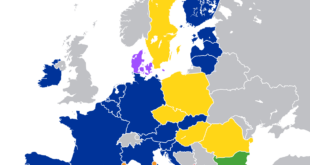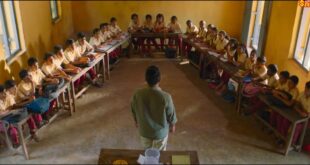- On November 7, the Supreme Court upheld the validity of the 103rd Constitution Amendment which provides 10% reservation to the economically weaker sections (EWS), but excludes from this quota the ‘poorest of poor’ among the Scheduled Castes (SCs), Scheduled Tribes (STs), Socially and Educationally Backward Classes and Other Backward Classes (OBCs).
- In a conversation moderated by Abhinay Lakshman, Satish Deshpande and Arghya Sengupta discuss whether reservation should be used as a means to alleviate economic backwardness. Edited excerpts:
Should reservation be a means to address poverty?
- Reservations result in quotas, which means you set aside a certain number of seats or opportunities for a particular group and make them unavailable to everyone else, no matter what their situation.
- This kind of a conscious setting aside of the principle of equality requires a strong justification. And that justification is provided by various forms of social discrimination, which are permanent because they are tied to indelible social identities.
- And if those forms of discrimination are allowed to continue unchecked, we will never have equality.
- That is why reservation should be saved for the most intractable forms of discrimination and not for more transient, more easily treatable problems like those originating from economic reasons.
- Arghya Sengupta: Reservation is a tool available to the government to alleviate different kinds of backwardness or discrimination that have been faced by certain individuals or groups.
- To answer this, first we have to understand that reservation is not an exception to the rule of equality, but required by the principle of substantive equality.
- You’re setting aside a certain number of seats, which are now not for open competition, [as] this is required by the principle of equality to try and ensure a level playing field. But a level playing field for whom? This is for elected governments to decide.
- At the time of the [drafting of the] Constitution, it was felt that reservations were needed in a particular context, which is social and educational backwardness. Now we see reservations of different kinds.
- It is open to a democratically elected government to introduce a principle of reservation on grounds other than caste as well.
- The government’s decision is easy to understand. There is a constituency — the Hindu upper castes — which feels that it should be getting its share of reservation. This is the electorally relevant prize that is being fought for.
- The intention to do this extends across ideologies and governments. The Congress government also wanted to introduce this earlier.
- The Court has argued that reservations are required for equality rather than being exceptions to equality. However, the common sense understanding has always been that these are exceptions, that caste is recognised only as an exception, and the implicit norm has been one of castelessness.
- This decision forces us to rethink whether that is true now as there is reservation for the upper castes.
- Can reservation be provided to a group/class of individuals without proof of inadequate representation? Reservations for SCs, STs, and OBCs were introduced with proof that these communities were not adequately represented, but this is not the case with the EWS quota.
- AS: First, I agree with Professor Deshpande — there is a clear political play in this. But there are three facts that I’d like to place on record.
- One, reservation on economic criteria has been made available to anybody who meets those criteria as long as they don’t have reservation on the basis of social and educational backwardness.
- Now, because of the politics of it, this [EWS quota] is being seen as forward caste reservation. But this reservation, strictly speaking, is also available to poor Muslims, poor Christians, and poor religious minorities.
- Two, we must realise that there has been a Constitution Amendment here. It [EWS quota] has not been brought under Article 16(4) of the Constitution, which requires proof of inadequacy of representation in government services.
- And three, all the judges have said that bringing in economic criteria in the Constitution does not violate the basic structure of the Constitution.
- The previous judgments of the Supreme Court were in the context of social and educational backwardness. It was held that economic criteria alone could not be used, because that was not the original understanding of the Constitution.
- But now the Constitution has changed. And the interpretation [based] on which all the judges have said the same thing is that it is open for the Constitution to be amended so that reservations are provided on the grounds of economic criteria alone, without having to prove inadequacy of representation or any other form of social and educational backwardness, and without having to comply with the 50% quota.
- This judgment opens the door for purely economic criteria and therefore takes away the need to provide any other criteria. It also sets aside the 50% limit, so it opens the door for other communities to ask for more.
- Finally, it makes it clear that reservation is no longer a special tool meant to address discrimination and can be used to address all forms of backwardness and disadvantage.
- The Court said the 50% cap is not inflexible. Jharkhand recently passed a Bill raising quotas to 77%. Many States are trying to do this. Does the judgment allow the 50% cap to be breached for the SC, ST, OBC quota?
- AS: There was only the majority judge, Justice Dinesh Maheshwari, who said that the 50% rule is in the context of social and educational backwardness [and does not] apply to reservation based on economic criteria.
- The Jharkhand case will be tested, but my sense is that for social and educational backwardness, there will be a case that the 50% rule still applies.
- But as Professor Deshpande said, there will be more demands for reservation from different kinds of communities which feel disadvantaged. Now, whether that is permissible or not we will have to see.
SOURCE: THE HINDU, THE ECONOMIC TIMES, PIB
 Chinmaya IAS Academy – Current Affairs Chinmaya IAS Academy – Current Affairs
Chinmaya IAS Academy – Current Affairs Chinmaya IAS Academy – Current Affairs



